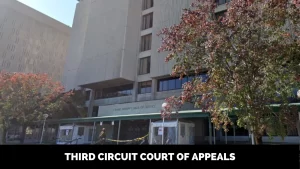What is Diversion in Court?
Introduction to Diversion Programs
When someone is arrested and charged with a crime, their case usually goes through the standard criminal justice system process. This typically involves prosecuting attorneys negotiating plea bargains or taking cases to trial. However, diversion programs offer an alternative for some defendants.
What is Diversion?
Diversion programs provide a way for eligible defendants facing certain charges to avoid formal prosecution. Instead of going through traditional court proceedings, defendants complete rehabilitative, educational, or other programs. Successfully finishing diversion leads to dismissed charges.
These programs aim to give worthy candidates a second chance to avoid a criminal conviction. Diversion also helps unclog overloaded courts and reduces burdens on jails and prisons. Some common types of diversion programs include:
- Pretrial diversion
- Pretrial intervention
- Drug court
- Mental health court
Types of Diversion Programs
There are many kinds of diversion programs available in courts across the United States. Some of the most popular options include:
Drug Diversion: For those facing drug possession or related charges. Treatment, counseling, and testing are typical requirements.
DUI Diversion: People arrested for driving under the influence may attend alcohol education, treatment, or monitoring programs.
Veterans Diversion: Military veterans get directed to specialty courts and VA assistance for mental health, substance abuse, or readjustment needs.
Mental Health Diversion: Defendants undergo counseling, medication management, and other psychiatric treatment through specialty mental health courts.
How Diversion Works
If deemed eligible by prosecutors or judges, defendants sign agreements outlining the diversion program’s rules and requirements. For example, a defendant charged with petty theft may have to complete shoplifter education classes and pay restitution.
By finishing diversion obligations in the designated timeframe, participants get their charges dismissed. Failing generally leads to revived criminal proceedings.
Goals of Diversion Programs
Courts institute diversion for several key reasons, including:
- Reduce overloaded court dockets
- Provide rehabilitative services
- Decrease burdens on jails/prisons
- Allow defendants to avoid convictions
Eligibility for Diversion
Diversion programs have strict standards for who qualifies to participate. Courts don’t allow just any defendant to use these alternative options.
Determining Eligibility
Prosecutors or judges decide eligibility on a case-by-case basis. They generally consider factors like:
- Severity of charges
- Criminal history
- Likelihood of success
- Victim input
Low-level, non-violent offenders often meet baseline diversion criteria. But approval remains subject to individual discretion.
Common Requirements
Though exact policies differ, standard diversion eligibility rules include:
- Facing low-level misdemeanor charges
- No prior felony convictions
- No extensive criminal record
- No registered sex offenses
- No crimes involving children
Domestic violence, DUI, and drug possession defendants may still qualify depending on the specifics. Violent felonies usually prohibit eligibility.
When Diversion May Not Apply
Some situations where diversion tends to get denied include defendants who:
- Previously failed diversion programs
- Committed violent or sex crimes
- Possess lengthy/severe criminal histories
- Lack victim/prosecutor approval
Judges refuse diversion if they believe offenders don’t deserve alternative sentencing or won’t complete requisite programs.
The Diversion Process Step-by-Step
If granted entrance into a diversion program, how does the process play out? Here is a step-by-step overview:
Arrest and Charges
The process begins when police arrest suspects and refer cases to prosecutors. Defendants face petty theft, minor drug possession, public intoxication etc. charges.
Meeting with the Prosecutor
Prosecutors meet with defendants and defense attorneys to discuss diversion eligibility. Both sides negotiate requirements and agree on terms.
Signing Up for a Program
Eligible defendants sign diversion agreements outlining the programs they must complete and rules they must follow to get charges dismissed.
Checking in with Probation
Many diversion participants must meet regularly with probation officers who monitor compliance status. Probation helps oversee progress.
Completing Diversion Successfully
The diversion process doesn’t end once programs get selected and agreements get signed. Defendants must then finish all elements completely to earn charge dismissals.
Following the Rules
Diversion participants must follow all program guidelines and rules without exception. Requirements often include:
- Attending meetings or classes
- Avoiding re-arrests
- Staying crime-free
- Passing drug/alcohol tests
- Paying fines/fees if applicable
Finishing Required Programs
In addition to obeying rules, defendants must fully complete assigned diversion programs. These may involve therapy, education courses, community service etc.
Getting Charges Dismissed
Upon satisfactory program conclusions, prosecutors file motions to dismiss initial charges. The court then discontinues cases without convictions entering defendants’ records.
Failing to Complete Diversion
Unfortunately, not all diversion participants manage programs successfully. Some may drop out or break rules leading to revived criminal proceedings.
Breaking Program Rules
Diversion agreements contain strict guidelines that if breached lead to failure. Examples include missing meetings, failed drug tests, new arrests.
Dropping Out of a Program
Some participants simply stop attending diversion programs without completing mandates. They essentially quit before finishing.
Dealing with Revived Charges
Prosecutors typically reinstate original criminal charges against unsuccessful diversion participants. Cases pick up where they left off before diversion admission.
Pros and Cons of Diversion Programs
Diversion participants trade avoided convictions for rigorous alternative obligations. These programs provide benefits but also pose significant demands.
Benefits of Diversion
If fully completed, diversion offers major advantages over formal prosecution, like:
- Prevent criminal convictions/records
- Avoid potential jail/prison time
- Receive rehabilitative/therapeutic treatment
- Demonstrate accountability without lifelong consequences
Drawbacks and Criticisms
However, diversion programs also carry disadvantages, including:
- Strict rules and oversight
- Extensive required programs/classes
- High completion standards
- Time commitments
- Financial costs
- Public safety concerns if programs prove ineffective
Some opponents criticize diversion as failing to provide adequate accountability for criminal acts. But most courts still view well-designed programs as worthwhile alternatives.
Specialty Diversion Programs
Alongside standard pretrial diversion, many jurisdictions now offer specialty programs tailoring to specific populations and offenses.
Mental Health Diversion
Special mental health courts oversee diversion programs for defendants with psychiatric disorders. Requirements incorporate:
- Counseling/therapy
- Medication management
- Hospitalization if needed
- Linkage to community resources
Veteran Diversion
Veterans courts handle diversion for prior military members. This commonly involves referrals to:
- VA health services
- Support groups
- Mentorship programs
- Other veteran resources
DUI/DWI Diversion
All states have some sort of diversion option for driving under the influence charges. Typical mandates include:
- Alcohol/drug education
- Treatment programs
- Ignition interlock device installation
- Community service
Drug Diversion
Many drug courts offer diversion incorporating:
- Substance abuse counseling
- Inpatient/outpatient treatment
- Frequent drug testing
- Self-help meeting attendance
Juvenile Diversion Programs
Many courts also provide diversion opportunities specifically tailored to underage defendants.
How Juvenile Diversion Works
Juvenile diversion adheres to the same basic premise of completing alternative programming instead of facing prosecution. But juvenile programs take extra care to meet children’s educational and developmental needs.
Unique Features
Differentiating aspects of many juvenile diversion programs include:
- Age-appropriate counseling
- Family/community involvement
- School progress monitoring
- Mentor pairing
Completion Consequences
Youth who fail diversion still avoid formal convictions under most juvenile justice systems. But charges staying on records can limit future opportunities in some cases.
Federal Diversion Programs
Even federal courts offer certain types of diversion options, typically overseen by the Department of Justice.
Types of Federal Diversion
Two main federal pretrial diversion programs exist, including:
- Federal Pretrial Diversion – Standard program for those meeting eligibility requirements
- Deferred Prosecution Agreements – Broader alternative handling more serious cases
Eligibility Differences
Unlike most state programs, federal diversion tends to accept defendants charged with felonies too. Prosecutors mainly consider cooperation potential and willingness to plead guilty when approving applicants.
Program Specifics
Federal diversion programs still require completing mandates like drug treatment, paying restitution etc. But no blanket criteria establishing eligibility exists across jurisdictions. Entry remains much more subjective based on prosecutors’ discretion.
Conclusion
Diversion programs provide opportunities for eligible criminal defendants to earn charge dismissals through alternative sentencing agreements. Specialty options tailor to specific populations as well. When successfully completed, diversion facilitates rehabilitation and avoids many consequences of formal prosecution. Standards and availability vary across different jurisdictions but most courts offer programs matching certain criteria. Diversion continues providing promising case resolution alternatives for appropriately screened participants.
FAQs
What are the main types of diversion programs?
The most common varieties include standard pretrial diversion, drug court diversion, mental health diversion, DUI diversion, veteran diversion and juvenile diversion. Specialty programs adapt to offenders with specific needs.
Who decides if I am eligible for diversion?
The prosecutor initially determines if a defendant meets general diversion criteria in their jurisdiction. But judges give final approval for entry in most cases. Eligibility remains subjective and context-dependent.
Can I get federal charges diverted?
It depends on the charges and program availability, but federal courts sometimes grant diversion too. Federal pretrial diversion and deferred prosecution agreements facilitate avoiding federal convictions when completed.
Do I have to plead guilty to do diversion?
No – most diversion programs allow participation without entering any plea at all. Defendants only plead if they fail diversion, causing regular criminal proceedings to resume.
What happens if I don’t finish diversion?
In most courts, failing diversion results in criminal charges getting refiled automatically. Cases revert to standard prosecution channels as if diversion never took place.







